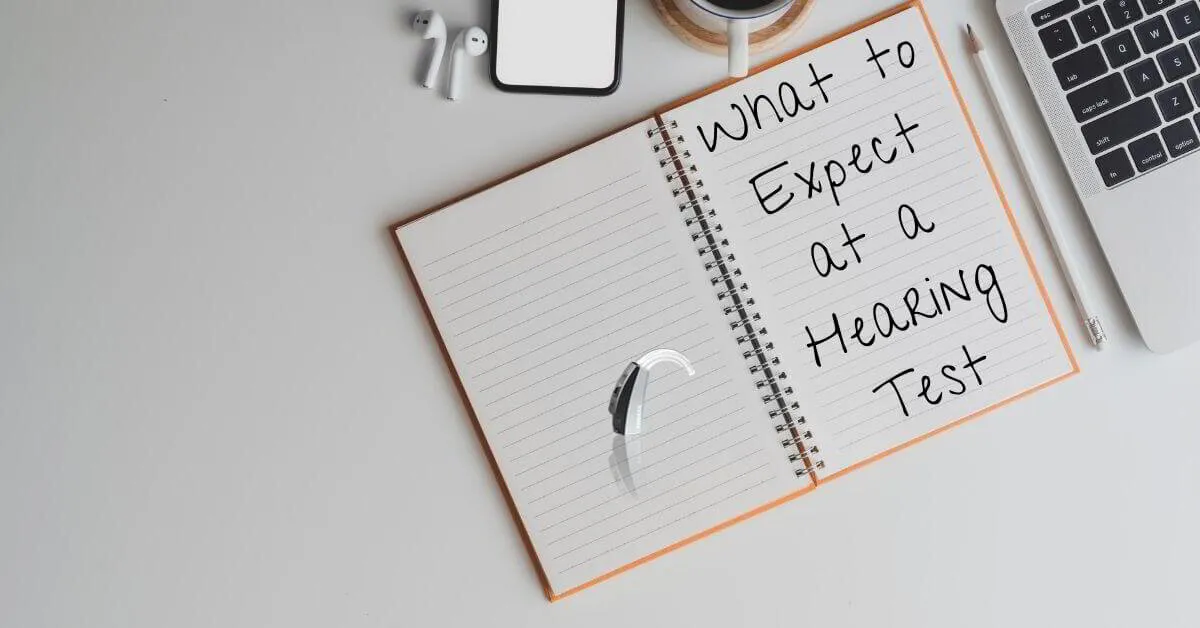Are you ready to schedule your first hearing test? Getting a hearing test is the best way to monitor your hearing health, and audiologists recommend that adults over 60 get a hearing test every year. A hearing test will show you exactly what sounds you’re missing, and help you make the right decision about what hearing aids to wear. Here’s what to expect at a hearing test.
TAKING A HEARING HEALTH HISTORY
We’ll start your hearing test by taking a hearing health history. We’ll ask you some questions about your overall health as well as your hearing health. For example, we may ask if you’ve had an ear infection recently, if you have allergies, or if you’ve had a head or neck injury.
Some health conditions can affect your hearing, and even some of your medications can affect your ears, so we want to get all the information we need to give you the best advice.
SHORT VISUAL EXAM
Next, we’ll do a short visual exam to look at your ears and in your ear canal. We’re checking for any sign of an injury or illness that could contribute to hearing loss. We’ll also check for a buildup of earwax that could be affecting your hearing.
ASKING ABOUT YOUR LIFESTYLE AND HEARING NEEDS
As part of the test, we’ll also take some time to get to know you. You can tell us about your lifestyle and hobbies, and where you spend most of your time. We’ll ask where you have the most difficulty hearing, and what listening situations are challenging. Finding out more about your lifestyle and hearing needs will help us recommend the perfect hearing aids to match your needs.
TESTING YOUR HEARING
Hearing tests are non-invasive and completely painless. They’re designed to test your hearing at a number of pitches to find your hearing threshold. We’ll ask you to wear headphones, and to listen carefully. All you have to do is indicate when you’ve heard a sound. During the hearing test, we’ll play sounds in one or both ears. These sounds can be at high or low pitches and they can be either loud or soft. This lets us find out exactly what sounds you’re missing.
Pure-tone test: During the pure-tone test, you’ll hear a series of tones. These can be at any pitch or volume. Some sounds will be so soft you can barely hear them, and some sounds will be outside your hearing range.
Speech test: During a speech test, you’ll hear words instead of tones. Just like the tones, these can be at any volume or pitch. All you need to do is listen to the word and repeat it back. This tests your ability to understand speech.
Hearing in noise: We also want to test your hearing in noise. For this test, you’ll hear speech or tones, along with background noise that keeps getting louder. This test measures how well you can hear in background noise.
GETTING YOUR RESULTS
Your test results are displayed on a graph called an audiogram. This graph shows the softest sounds you can hear at each different pitch. The results for each ear are shown on two different lines, so you can easily see what sounds you can hear with each ear.
After your hearing test we’ll go through the results together. We’ll show you what sounds are within your hearing range, and what sounds you’re straining to hear. If your audiogram shows a hearing loss of more than 25 decibels (dB), you should seek treatment for hearing loss. Hearing loss can be mild, moderate, severe or profound.
TREATING HEARING LOSS
At the end of the hearing test, we’ll take some time to talk about your treatment options. The most common treatment for hearing loss is hearing aids. Modern hearing aids have advanced programs and features that help you focus on speech, diminish background noise, and reduce listening fatigue. We have hearing aids of all styles, including Behind-the-Ear, In-the-Ear, and In-the-Canal hearing aids. Our hearing aids also fit a range of lifestyle and hearing needs. If you have an active lifestyle, need to hear at work, or want to enjoy conversations in crowds, we’ll help you find the hearing devices that will help you hear.

